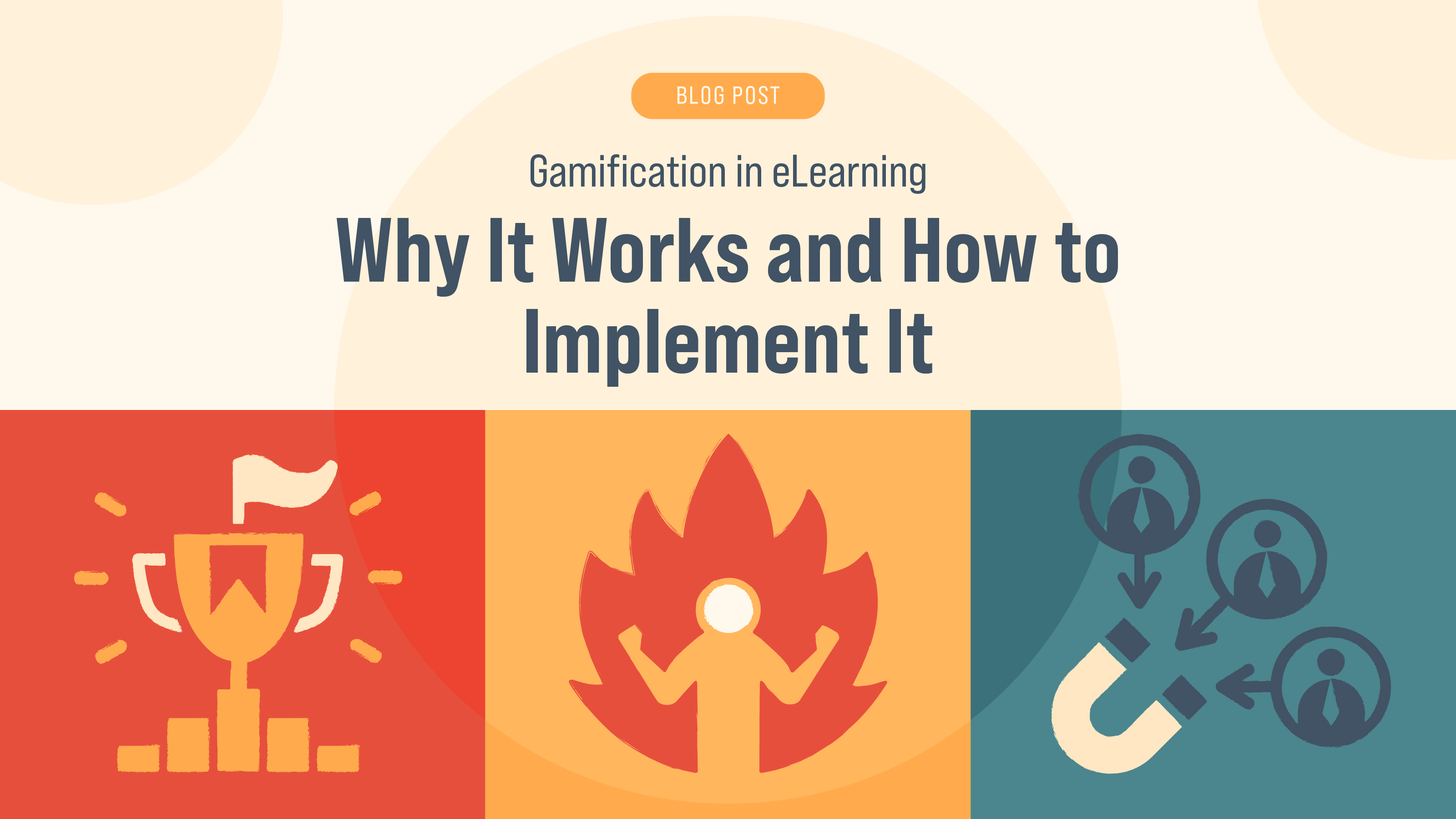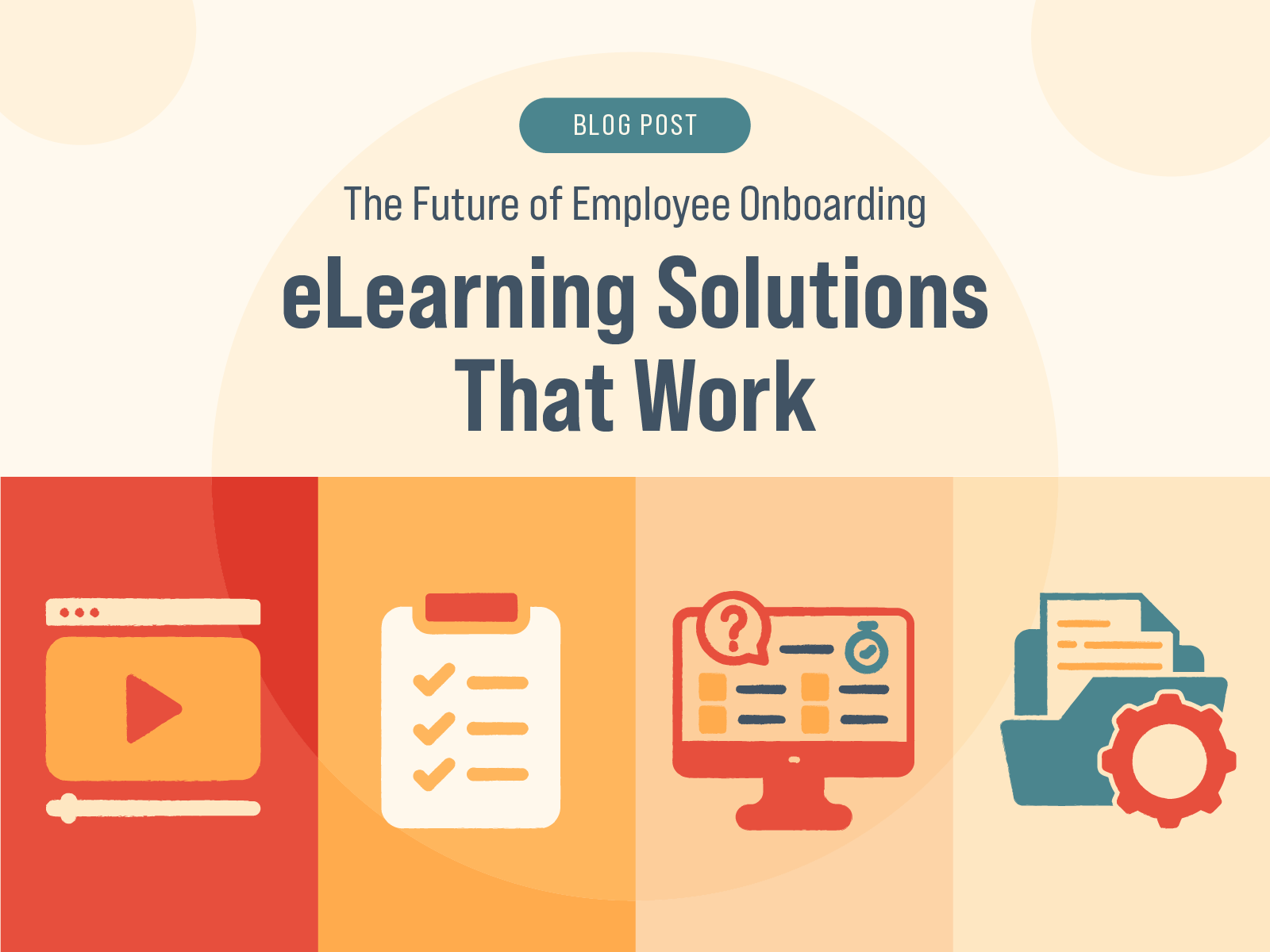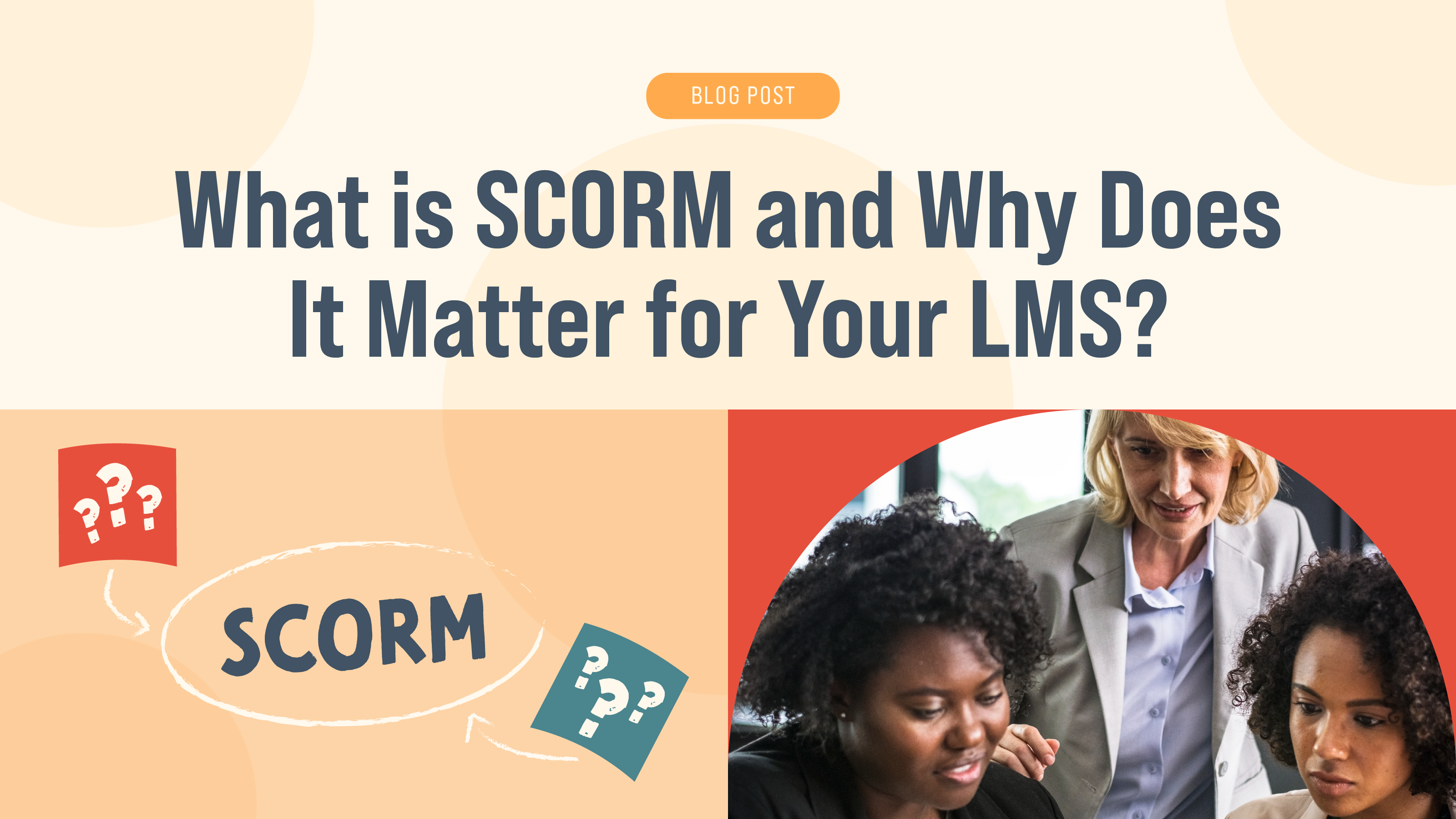The Process of eLearning Part 5: The Implementation Phase
Welcome to the final part of our series “The Process of eLearning”!
The Implementation and Evaluation Phases are critical in ensuring that an eLearning course delivers its intended impact. While these phases are essential, it's important to note that Allegro Media Design primarily focuses on the development and delivery of SCORM-compliant courses. We typically hand over the course to clients for implementation and evaluation, but we are always ready to assist with these processes if needed. Here’s an overview of what these phases entail and why they are important.
Implementation Phase
The Implementation Phase involves deploying the eLearning course to learners and ensuring they have access to the content in a seamless and efficient manner.
Key Steps in the Implementation Phase
LMS Integration
Once the course is developed, it needs to be integrated into the client’s Learning Management System (LMS).
- SCORM Compliance: We ensure that the eLearning course is SCORM-compliant, making it compatible with various LMS platforms. This allows for tracking learner progress and performance.
- Client Upload: Typically, we provide the SCORM package to our clients, who then upload it to their LMS. This process involves ensuring that the course runs smoothly and that all interactive elements and multimedia function as intended.
Deployment Strategies
Effective deployment strategies ensure that the course reaches all intended learners without any technical issues.
- Communication Plan: We advise clients on how to communicate the availability of the new course to learners. This might include email notifications, internal announcements, and providing access instructions.
- Technical Support: While we do not typically provide ongoing support, we are available to assist with initial technical issues related to the course deployment. This ensures a smooth rollout and addresses any immediate concerns.
Monitoring and Maintenance
Although monitoring is usually managed by the client, we provide guidance on what to look for.
- Monitoring Usage: Clients can track learner engagement, progress, and completion rates through their LMS. This data helps in understanding how well the course is being received and utilized.
- Maintenance and Updates: We are available to assist with any necessary updates or maintenance to ensure the course remains current and functional.
Evaluation Phase
The Evaluation Phase is crucial for assessing the effectiveness of the eLearning course and identifying areas for improvement.
Key Steps in the Evaluation Phase
Formative and Summative Evaluation
Evaluations can be conducted both during and after the course to gather comprehensive feedback.
- Formative Evaluation: This involves collecting feedback during the course development and implementation stages. It helps in making real-time adjustments to improve the course content and delivery.
- Summative Evaluation: Conducted after the course is completed, summative evaluation measures the overall effectiveness of the training. This includes assessing learner performance, satisfaction, and the achievement of learning objectives.
Feedback and Improvement
Gathering and analyzing feedback is essential for continuous improvement.
- Learner Feedback: We encourage clients to collect feedback from learners through surveys, quizzes, and assessments. This feedback provides valuable insights into what worked well and what needs improvement.
- Performance Metrics: Analyzing performance metrics helps in understanding the impact of the training on learner performance and business outcomes. This data can inform future training initiatives and course updates.
Assessing ROI
Evaluating the return on investment (ROI) is important for understanding the financial impact of the eLearning course.
- Cost-Benefit Analysis: Clients can conduct a cost-benefit analysis to compare the costs of developing and implementing the course with the benefits derived from improved performance and productivity.
- Outcome Measurement: Measuring outcomes such as increased knowledge retention, improved skills, and enhanced job performance helps in demonstrating the value of the eLearning course.
Why Implementation and Evaluation Matter
The Implementation and Evaluation Phases ensure that the eLearning course not only reaches the learners but also meets its educational objectives. These phases help in identifying any issues, making necessary adjustments, and demonstrating the effectiveness and value of the training.
Allegro Media Design’s Approach
At Allegro Media Design, our primary focus is on delivering high-quality SCORM-compliant courses ready for implementation. While we typically hand over the course to clients for the actual implementation and evaluation, we are always available to provide guidance and support. Our experience in these phases ensures that our clients have the tools and knowledge needed to successfully deploy and evaluate their eLearning courses.
Ready to Implement and Evaluate Your eLearning Course?
If you're ready to implement and evaluate your eLearning course, Allegro Media Design is here to help. Contact us today to learn more about our development services and how we can support you through the entire eLearning process.
Check out the other blogs in this series:
- Part 1: The eLearning Process
- Part 2: The Analysis Phase
- Part 3: The Design Phase
- Part 4: The Development Phase
More Articles


Gamification in eLearning: Why It Works and How to Implement It

The Future of Employee Onboarding: eLearning Solutions That Work

What is SCORM and What Does it Matter

Accessibility in eLearning: Why It’s Essential and How to Achieve It

Microlearning: Bite-Sized Training for Big Results

Soft Skills Training Through eLearning: Building Better Leaders

How to Write Learning Objectives for eLearning Courses

When to Outsource Your eLearning Development (and How to Choose the Right Partner)

Employee Engagement in 2025: How eLearning Can Help

Training for a Multigenerational Workforce: Meeting Everyone’s Needs

The Future of eLearning: 4 Trends Shaping the Industry

How To Find the Right eLearning Developer

What Makes eLearning Effective?

Transform Your eLearning with the Magic of Animation

How to Use Audio to Enhance eLearning

Boost Learning Efficiency with Microlearning

Give Your Dated eLearning a Fresh Facelift

The Process of eLearning Part 4: The Development Phase

The Process of eLearning Part 3: The Design Phase

The Process of eLearning Part 2: The Analysis Phase

The Process of eLearning Part 1

Empower Your Workforce with Self-Paced Training

Elevate Your Training with Exceptional Visual Design

Taking the Confusion Out of SCORM

Embrace Efficiency: The Power of Outsourcing Your eLearning Production

Mastering eLearning: Elevating Corporate Training Through Scenario-Based Learning

Converting ILT to vILT: Embrace the Virtual Shift

Spice Up Your Boring Corporate Training With Animated Videos Copy

From Concept to Clicks: The Crucial Role of eLearning Developers

Lost in Translation: Mastering Multilingual eLearning

Training Crossroads: ILT or eLearning – What's Your Strategy?

How to Transform Boring Compliance Training

Last-Minute Crunch? Allegro Media Delivers Rapid eLearning Solutions Just-In-Time!

The Art of Chunking (or How to Eat a Whale)

Zen & The Art of eLearning Maintenance: Finding Harmony with Allegro Media Design

How to leverage ChatGPT for eLearning Applications

What Should I Look for When Hiring an eLearning Vendor?

Unveiling the Future of eLearning: Trends to Watch in 2024

Subject Matter Experts: Be Proud! Allegro loves you just how you are!

What in the World is an LMS?

Enhancing eLearning Engagement: The Power of Scenario-Based Interaction with Stylized 3D Motion Images

Enhancing eLearning with DALL-e: Adding Visual Reinforcement for Engaging Corporate Training

Choosing the Right Authoring Tool for Your eLearning Course

High Quality Audio is ESSENTIAL in Modern eLearning

What in the World is SCORM?

A Complete Guide to Leadership Training and Development

Benefits of Customer Service eLearning Training

14 Tips To Effectively Use Audio for eLearning Courses

10 Instructional Design Tips for Effective eLearning

Why You Should Use eLearning For Product Training

Benefits of Voice Overs for Your Business

How to Create Great eLearning Content: 9 Tips

Video Marketing for Business: 10 Benefits of Promotional Videos

Gamification in the Workplace: Why and How to Use It

5 Best Practices for Training Remote Employees

How to Avoid eLearning Burnout and Fatigue

What Is Customer eLearning Training and Why Do You Need it?

8 eLearning Sales Training Best Practices: Tips & Use Cases

How to Effectively Use Videos in eLearning

Best Practices for Remote Employees Onboarding with eLearning

Why You Should Invest in Corporate eLearning?

How Can eLearning Reduce Employee Burnout?

How to Motivate Employees to Participate in eLearning Training: 9 Tips

eLearning Trends and Predictions: 2022 Forecast

7 Reasons to Outsource Your eLearning Course Development
%20to%20Virtual%20Instructor-Led%20Training%20(VILT).jpg)
How to Convert Instructor-Led Training (ILT) to Virtual Instructor-Led Training (VILT)

12 Best Tips on How to Improve Employee Training with Gamification in 2021-2022

What Is Compliance Training and Why Is It Important for Your Business?
%20vs.%20eLearning.jpg)
Instructor-Led Training (ILT) vs. eLearning: Which Should I Choose?

The Difference Between An Instructional Designer And An eLearning Developer
















